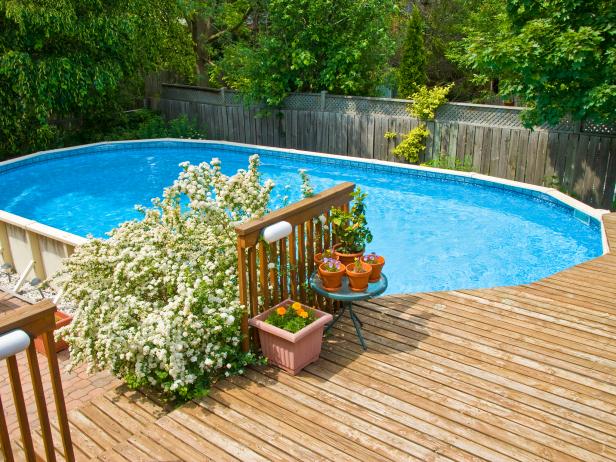Are you considering adding a swimming pool to your home but feeling overwhelmed by the choices? Look no further.
In this article, we will provide an objective and well-researched comparison of three popular pool types: concrete, fiberglass, and vinyl. From initial cost to maintenance requirements and shape options, we will delve into every aspect to help you make an informed decision.
Stay tuned to discover the pool that best suits your needs.
Key Takeaways
- Concrete pools have the highest initial and long-term costs compared to fiberglass and vinyl pools.
- Fiberglass pools are the easiest to maintain, while concrete pools require the most maintenance.
- Concrete and vinyl pools offer customization options in terms of shape and size, whereas fiberglass pools have limited options.
- Concrete and fiberglass pools have a longer lifespan of up to 20-25 years, while vinyl pools require liner replacement every 5-9 years.
Initial Cost: Comparing Concrete, Fiberglass, and Vinyl Pools
The initial cost of installing a swimming pool varies significantly depending on the type. Concrete pools have the highest price, while fiberglass pools fall in the middle range, and vinyl pools are the least expensive option. Concrete pools are made with a shotcrete base and a cement plaster finish, making them durable and resistant to sharp objects. However, the installation and resurfacing costs for concrete pools are higher compared to other pool types.
Fiberglass pools, on the other hand, are made from a finished fiberglass shell that is set into the ground. They are manufactured off-site and then trucked to the residence for installation. This rapid installation process usually takes about a week. However, fiberglass pools have limited customization options in terms of shape and design, and they are generally smaller compared to concrete and vinyl pools.
Vinyl pools are created by building a frame and placing wall panels and a vinyl liner. They offer flexibility in shape and size and have a smooth surface for a non-abrasive feel. Vinyl pools are the cheapest option in terms of initial price. However, they require liner replacement every 5-9 years, which adds to the long-term cost of owning a vinyl pool.
When considering the initial cost of pool installation, it is important to also take into account the long-term cost, maintenance requirements, and durability of each pool type. Concrete pools have the highest initial and long-term costs, but they can last up to 20 years with potential refinishing. Fiberglass pools are easier to maintain but have limited customization options and a shorter lifespan. Vinyl pools are the least expensive option initially, but they require more frequent repairs and liner replacements.
Maintenance and Durability: Concrete Vs. Fiberglass Vs. Vinyl
Maintenance and durability differ among concrete, fiberglass, and vinyl pools. Concrete pools require the most maintenance due to their porous surface, which can harbor algae and bacteria if not properly maintained. Regular brushing, vacuuming, and chemical balancing are necessary to keep the pool clean and safe. Additionally, concrete pools may require periodic resurfacing every 10-15 years to maintain their appearance and structural integrity. This can be a costly and time-consuming process.
On the other hand, fiberglass pools are known for their low maintenance requirements. The smooth, non-porous surface of fiberglass prevents algae and bacteria from adhering, reducing the need for frequent cleaning. The surface is also resistant to staining and does not require periodic resurfacing. However, it is important to note that fiberglass pools can develop hairline cracks over time, which may require repair.
Vinyl pools fall in between in terms of maintenance. The vinyl liner, while smooth and non-abrasive, can be susceptible to tears and punctures. It is recommended to inspect the liner regularly and patch any damages to prevent leaks. Additionally, vinyl liners need to be replaced every 5-9 years, adding to the long-term maintenance costs.
In terms of durability, concrete pools are the most durable option. They can last up to 20 years or more with proper maintenance and occasional resurfacing. Fiberglass pools are also durable, with a lifespan of around 20-25 years. However, the durability of vinyl pools is relatively lower, primarily due to the need for liner replacement every few years.
Shape and Size Options: Concrete Vs. Fiberglass Vs. Vinyl Pools
When considering shape and size options for swimming pools, both concrete and vinyl pools offer customization options, while fiberglass pools have limited choices.
Concrete pools, made with a shotcrete base and a cement plaster finish, provide the most flexibility in terms of shape and size. They can be designed to fit any space and can be customized to create unique and intricate designs.
On the other hand, vinyl pools are created by building a frame and placing wall panels and a vinyl liner. This construction method allows for customization in shape and size as well. Vinyl pools are particularly popular for their smooth surface, providing a non-abrasive feel for swimmers.
In contrast, fiberglass pools are manufactured off-site and trucked to the residence as a finished fiberglass shell. Due to this manufacturing process, fiberglass pools have limited customization options in terms of shape and design. They are typically smaller in size compared to concrete and vinyl pools, and the shape options are often limited to pre-designed molds. This can be a drawback for homeowners who have specific shape and size requirements for their pool.
When it comes to shape and size options, concrete and vinyl pools offer the most flexibility, allowing homeowners to create a pool that fits their specific needs and preferences. Fiberglass pools, while limited in this aspect, may still be suitable for those who prioritize rapid installation and are content with the available shapes and sizes.
Ultimately, the choice of pool material will depend on the homeowner's priorities and preferences in terms of shape, size, and customization options.
Longevity and Lifespan: Concrete Vs. Fiberglass Vs. Vinyl Pools
Concrete and fiberglass pools can have a lifespan of up to 20-25 years, while vinyl pools require more frequent repairs and liner replacements. When considering the longevity and lifespan of swimming pools, it is important to understand the differences between concrete, fiberglass, and vinyl pools.
Concrete pools, made with a shotcrete base and a cement plaster finish, are known for their durability. They can withstand sharp objects and offer flexibility in shape and size. With proper maintenance and occasional refinishing, concrete pools can last up to 20 years. However, it is important to note that concrete pools require higher installation and resurfacing costs compared to other pool types.
On the other hand, fiberglass pools are made from a finished fiberglass shell that is set into the ground. These pools are manufactured off-site and then trucked to the residence for rapid installation, usually taking a week. While fiberglass pools have a limited range of customization options in terms of shape and design, they are known for their durability and low maintenance requirements. With proper care, fiberglass pools can also last up to 20-25 years.
Vinyl pools, created by building a frame and placing wall panels and a vinyl liner, are the cheapest option in terms of initial price. However, they have a shorter lifespan compared to concrete and fiberglass pools. Vinyl pools require liner replacement every 5-9 years, increasing the long-term cost of ownership.
Pros and Cons: Concrete Vs. Fiberglass Vs. Vinyl Pools
Comparing the pros and cons of concrete, fiberglass, and vinyl pools allows for a comprehensive analysis of their respective advantages and disadvantages. Here are the pros and cons of each pool type:
- Concrete Pools:
- Pros:
- Durable and resistant to sharp objects, making them less prone to damage.
- Offers flexibility in shape and size, allowing for customization according to personal preferences.
- Can last up to 20 years with potential refinishing, providing long-term enjoyment.
- Cons:
- Higher installation and resurfacing costs compared to other pool types, making them more expensive initially.
- Require more maintenance due to the porous nature of the surface, which can lead to algae growth and the need for regular cleaning.
- Longer construction time compared to other pool types, resulting in a longer wait before enjoying the pool.
- Fiberglass Pools:
- Pros:
- Rapid installation process, usually taking a week, allowing for quicker enjoyment.
- Low maintenance requirements, as the smooth gelcoat surface resists algae growth and requires less cleaning.
- High durability, with the potential to last up to 25 years.
- Cons:
- Limited customization options in terms of shape and design, as the pools are manufactured off-site and delivered as finished shells.
- Smaller on average compared to concrete and vinyl pools, limiting the swimming space available.
- Higher initial cost compared to vinyl pools, but lower than concrete pools.
- Vinyl Pools:
- Pros:
- Cheapest option in terms of initial price, making them more affordable for budget-conscious buyers.
- Allows for customization in shape and size, providing more design options.
- Smooth surface for a non-abrasive feel while swimming.
- Cons:
- Requires liner replacement every 5-9 years, resulting in additional maintenance and cost.
- The vinyl liner is susceptible to punctures and tears, requiring frequent repairs.
- Shorter lifespan compared to concrete and fiberglass pools.
Considering these pros and cons can help individuals make an informed decision when choosing between concrete, fiberglass, and vinyl pools. Factors such as budget, maintenance preferences, durability, and customization options should be carefully evaluated to ensure the chosen pool type aligns with personal needs and preferences.
Frequently Asked Questions
What Factors Should I Consider When Choosing a Pool Other Than Initial Cost, Long-Term Cost, Maintenance, Shape, and Size?
When choosing a pool, it is important to consider factors beyond the initial cost, long-term cost, maintenance, shape, and size. Other considerations include the location of the pool in relation to the house, as well as the landscaping and overall aesthetic appeal.
Additionally, factors such as safety features, energy efficiency, and the availability of local pool contractors should also be taken into account.
How Do the Installation Costs of Concrete, Fiberglass, and Vinyl Pools Compare?
When comparing the installation costs of concrete, fiberglass, and vinyl pools, it is important to consider the specific requirements and processes involved.
Concrete pools typically have higher installation costs due to the labor-intensive nature of construction and the need for specialized equipment.
Fiberglass pools, on the other hand, have lower installation costs as they are pre-fabricated and require less time and labor for installation.
Vinyl pools generally have the lowest initial installation costs, making them a more budget-friendly option.
Are There Any Specific Maintenance Requirements or Considerations for Each Type of Pool?
When considering the maintenance requirements for each type of pool, there are specific considerations to keep in mind.
Concrete pools require the most maintenance due to their porous surface, which can harbor algae and require regular cleaning and chemical balancing.
Fiberglass pools, on the other hand, have a smooth surface that is resistant to algae growth and requires minimal maintenance.
Vinyl pools require occasional liner replacement and regular pH balancing.
These maintenance requirements should be taken into account when choosing the right pool for your needs.
Can I Customize the Shape and Design of a Fiberglass Pool, or Am I Limited to Pre-Set Options?
When it comes to customizing the shape and design of a swimming pool, fiberglass pools have limited options compared to concrete and vinyl pools. Fiberglass pools are manufactured off-site and come in pre-set shapes and sizes, which restricts the level of customization available.
In contrast, concrete and vinyl pools offer more flexibility in shape and size, allowing for greater customization. Therefore, if customization is a priority, it may be more suitable to consider either a concrete or vinyl pool over a fiberglass pool.
Are There Any Additional Pros or Cons of Concrete, Fiberglass, and Vinyl Pools That I Should Be Aware Of?
Concrete, fiberglass, and vinyl pools each have their own pros and cons.
Concrete pools offer customization options in terms of shape and size, but have higher installation and resurfacing costs.
Fiberglass pools have limited customization options, but are easier to maintain.
Vinyl pools are the cheapest option initially, but require liner replacement every 5-9 years.
It is important to consider these factors when choosing a pool to ensure it meets your specific needs and budget.




